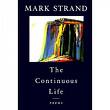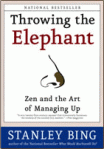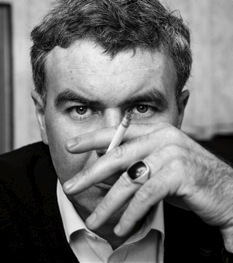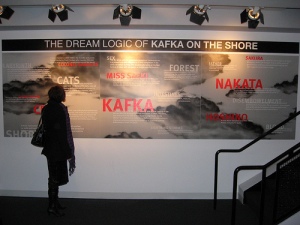
The Continuous Life
What of the neighborhood homes awash
In a silver light, of children crouched in the bushes,
Watching the grown-ups for signs of surrender,
Signs that the irregular pleasures of moving
From day to day, of being adrift on the swell of duty,
Have run their course? Oh parents, confess
To your little ones the night is a long way off
And your taste for the mundane grows; tell them
Your worship of household chores has barely begun;
Describe the beauty of shovels and rakes, brooms and mops;
Say there will always be cooking and cleaning to do,
That one thing leads to another, which leads to another;
Explain that you live between two great darks, the first
With an ending, the second without one, that the luckiest
Thing is having been born, that you live in a blur
Of hours and days, months and years, and believe
It has meaning, despite the occasional fear
You are slipping away with nothing completed, nothing
To prove you existed. Tell the children to come inside,
That your search goes on for something you lost–a name,
A family album that fell from its own small matter
Into another, a piece of the dark that might have been yours,
You don’t really know. Say that each of you tries
To keep busy, learning to lean down close and hear
The careless breathing of earth and feel its available
Languor come over you, wave after wave, sending
Small tremors of love through your brief,
Undeniable selves, into your days, and beyond.
-Mark Strand, the title poem from his book.
This slim volume of poems is a source of endless nourishment and inspiration.

 “Many animals walk the earth. Only some of them are elephants. The rest of us must deal with them.
“Many animals walk the earth. Only some of them are elephants. The rest of us must deal with them.
 Beside him, Alice kneeled by the arm of the chair and seemed to try to see what he was seeing. Martin knew that she felt his irritation and, glancing down at her as she kneeled there, he had a moment of pity for the lobby orphan and of anger at himself. He let his hand drop over the side of the chair and touched her on the shoulder. Alice grew suddenly tense–turned to him with a startled, almost violent look–her shoulder trembled–and all at once Martin felt something pass over him, his heart beat fast, there was an inner bursting, and the entire lobby was transformed: he became aware of the soft underswish of petticoats, the faint creak of stays, the rub of silk stockings, a dark alluring undersound of silk and lace, a sudden dark flash of glances–and as they strode past or sank sighing into soft couches, the ladies of the lobby began shedding their long dresses, unlacing their tight corsets, flinging up their petticoats like bursts of snow, throwing back their heads and breathing sharply as veins beat in their necks, while Martin, rippling with terror, starrted to rise and knocked something over that began rolling away and away and away along the wavy pattern of the marble floor.
Beside him, Alice kneeled by the arm of the chair and seemed to try to see what he was seeing. Martin knew that she felt his irritation and, glancing down at her as she kneeled there, he had a moment of pity for the lobby orphan and of anger at himself. He let his hand drop over the side of the chair and touched her on the shoulder. Alice grew suddenly tense–turned to him with a startled, almost violent look–her shoulder trembled–and all at once Martin felt something pass over him, his heart beat fast, there was an inner bursting, and the entire lobby was transformed: he became aware of the soft underswish of petticoats, the faint creak of stays, the rub of silk stockings, a dark alluring undersound of silk and lace, a sudden dark flash of glances–and as they strode past or sank sighing into soft couches, the ladies of the lobby began shedding their long dresses, unlacing their tight corsets, flinging up their petticoats like bursts of snow, throwing back their heads and breathing sharply as veins beat in their necks, while Martin, rippling with terror, starrted to rise and knocked something over that began rolling away and away and away along the wavy pattern of the marble floor.

 “Why should we assume the faults of our friend, or wife, or father, or child, because they sit around our hearth, or are said to have the same blood? All men have my blood and I all men’s.”
“Why should we assume the faults of our friend, or wife, or father, or child, because they sit around our hearth, or are said to have the same blood? All men have my blood and I all men’s.” “Though once I was a singer of tales, they were not very good, for I always put too much of my heart in them, and never enough (I was told) of calculation. Where others would captivate and entertain, I would only sing a simple song that bent its head as if in prayer before time and truth and love. It was all I could do, and all I wanted to do, and I don’t know why. I followed nature’s wild rivers and God’s glittering lights, and they led me into a land where I was alone.
“Though once I was a singer of tales, they were not very good, for I always put too much of my heart in them, and never enough (I was told) of calculation. Where others would captivate and entertain, I would only sing a simple song that bent its head as if in prayer before time and truth and love. It was all I could do, and all I wanted to do, and I don’t know why. I followed nature’s wild rivers and God’s glittering lights, and they led me into a land where I was alone.